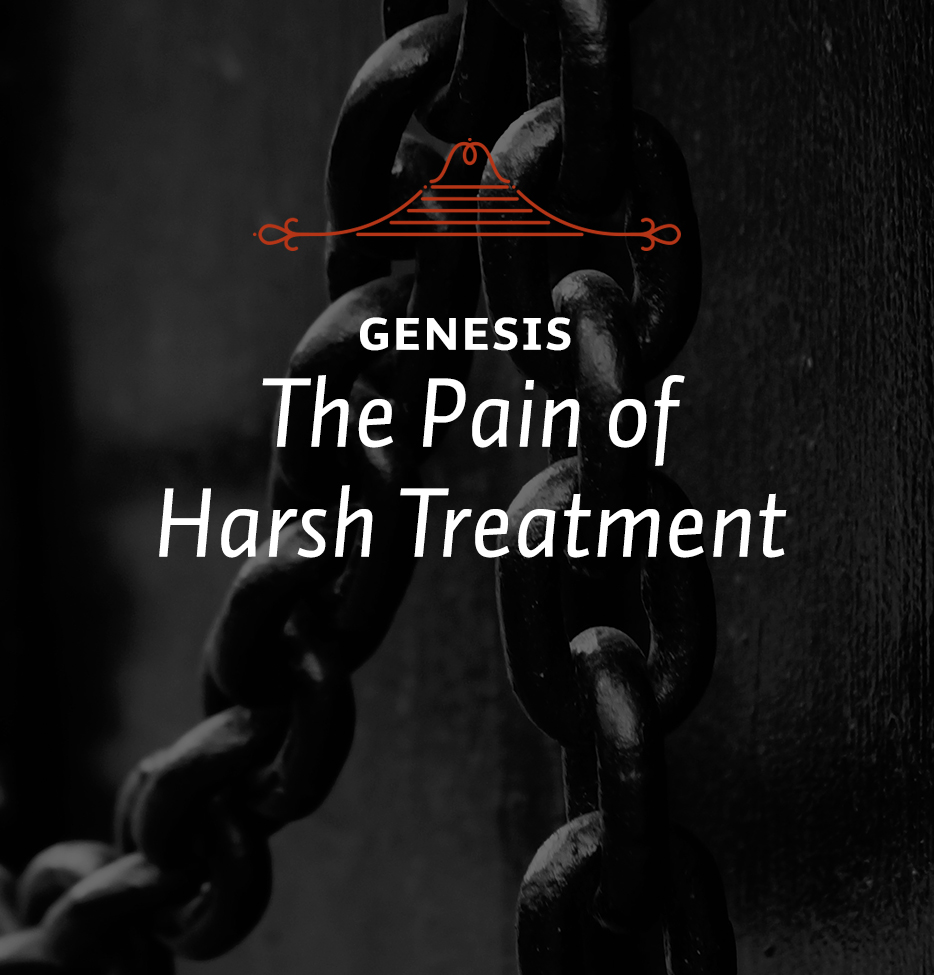I think, too, that F.B. Meyer is probably right when he suggests that Joseph probably repeated exactly the scene that had taken place at the pit’s mouth when his brothers had first fallen upon him years before. This is a hard thing to prove, of course, but it is reasonable.
Although we are not given all the details we might like in Genesis 37, it is not unreasonable to think that when Joseph’s brothers saw him coming toward them in his envied tunic they probably rushed at him, accusing him of having come to spy out their corrupt behavior and report on them to their father. As I say, we are not told that they did this. But it is reasonable to think that they may have done so, and if they did, it would explain why Joseph immediately thought of accusing them of the same thing: “You are spies!” (Gen. 42:9, 14). Moreover, if the brothers had accused Joseph of having been a spy from their father, the lad would certainly have protested that he was no spy, that he was only concerned for their welfare—the same thing the brothers were forced to say later: “No, my lord. Your servants have come to buy food. . . . Your servants are honest men, not spies” (vv. 10-11). To carry the parallel a bit further, it is clear that Joseph’s being cast into the pit in the earlier story has a parallel in his putting the brothers into prison in the second (v. 17).
This approach to the brothers on Joseph’s part would have made a powerful appeal to their consciences. Indeed, it is shortly after their imprisonment that the brothers confess their sin openly for the first time, perhaps themselves suggesting a parallel: “Surely we are being punished because of our brother. We saw how distressed he was when he pleaded with us for his life, but we would not listen; that’s why this distress has come upon us” (v. 21).
In the last study, when I first introduced the matter of the conscience and asked about both its strengths and limitations, I referred to William Shakespeare’s best-known play, Hamlet, because it has so much to say about the conscience. That play is worth remembering again in this study because the device that Hamlet used to uncover his murderous uncle’s guilt is what Joseph may have used here. Before the play begins Hamlet’s uncle had murdered his father to gain the crown of Denmark. But Hamlet suspects the murder and wants to avenge it. How is he to make sure? Claudius seems to be guilty, but is he? Even after the ghost of Hamlet’s father appears and tells him the details of his murder, Hamlet hesitates to strike. What if he should be wrong? What if the king, his uncle, should be innocent?
At last he hits upon the idea of a play. A troupe of players has come to the castle, and Hamlet arranges to have them act out a play re-enacting the details of the murder the ghost had told him about. He calls it “The Mousetrap” and identifies it as the device by which he will catch the king’s conscience. When the play is performed the king is deeply affected. He rises suddenly and rushes from the room. “Give me some light,” he says. Later he confesses his fault, though not openly:
O, my offence is rank, it smells to heaven; It hath the primal eldest curse upon’t, A brother’s murder (act 3, sc. 3).
If Joseph were re-enacting the scene at the pit, perhaps even repeating to the brothers the words they had hurled at him, which had been indelibly etched in his memory, then it is understandable that the brothers began to come around at this point. Joseph’s words were not an unbridled outpouring of invective or mere cruelty. They were carefully calculated words which proved effective in bringing the brothers to a necessary confession of their sin and so to salvation.






